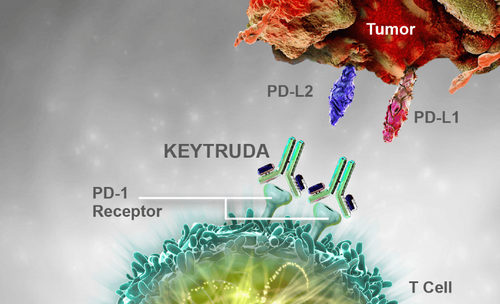This is an automatically translated article.
The article was written by doctors of Internal Oncology Department - Vinmec Times City International General Hospital.When cancer arises in one organ in the body and spreads to another organ, it is called metastasis. Brain metastases are when primary lung cancer has produced one or more secondary tumors in the brain.
About 20 to 40% of people with non-small cell lung cancer will go on to develop brain metastases at some point during the disease. Also other common sites of metastasis are:
Adrenal glands. Skeletal. Liver . Lungs or other respiratory system.
1. How does lung cancer metastasize to the brain?
There are 2 different types of lung cancer:
Small cell lung cancer, which accounts for about 10-15% of all lung cancers. Non-small cell lung cancer accounts for 80-85% of all lung cancers. Lung cancer mainly metastasizes to other parts of the body through the lymphatic vessels and blood vessels.
Although lung cancer easily metastasizes through the lymphatic vessels, it often takes a long time until the cancer metastasizes secondary. With blood vessels, cancer is often more difficult to penetrate. Once infiltrated, however, metastatic cancer spreads rapidly.
In general, hematopoietic metastases have a poor prognosis in the short term, and lymph node metastases have a poor long-term prognosis.

Thông qua mạch máu, ung thư phổi sẽ di căn sang các bộ phận khác
2. Symptoms of brain metastatic lung cancer
If you are diagnosed with lung cancer, pay special attention to symptoms of brain metastases, including:
Decreased memory, concentration and cognition. Headache due to cerebral edema. Lie. Nausea and vomiting. Overbalance. Hard to say. Numbness. Tingling sensation. Convulsions.

Giảm trí nhớ là một trong những triệu chứng của ung thư phổi di căn lên não
3. How to detect brain metastases lung cancer?
To screen for brain metastases, doctors often use imaging tests such as:
MRI. CT scan/scan. Sometimes a doctor may take a biopsy to determine if there are cancer cells in the brain
4. Methods of treating brain metastatic lung cancer
The main types of treatment for brain metastases are:
Surgery: Surgery may be the initial treatment for brain metastases if: The tumor is in the brain alone. disease at other sites is controlled. The patient is in good health enough to undergo surgery. Whole brain radiation therapy: Your doctor may recommend radiation therapy to the whole brain if several tumors are present. Radiosurgery: This treatment is a high-dose radiation therapy that targets brain tumors and is often used in patients with fewer, smaller tumors. Immunotherapy and Targeted Therapy: Newer treatments, such as immunotherapy and targeted therapies that can cross the blood-brain barrier, may be recommended as complementary treatments.

Phẫu thuật có hiệu quả lớn trong việc điều trị ung thư
5. Benefits of Pembrolizumab in the treatment of brain metastatic non-small cell lung cancer
The body's immune system has the function of recognizing and destroying foreign cells. However, some cancer cells have the ability to make the immune system unable to recognize and destroy.
Treatment with the immunotherapy drug Keytruda (pembrolizumab) has been shown to "neutralize" this ability of cancer cells, thereby helping immune cells recognize attacking cancer cells and destroy them. .
Keytruda immunotherapy only kills malignant cells without affecting normal cells. As a result, this therapy helps to minimize unwanted side effects and improve treatment results. On the other hand, treatment with Keytruda has a much higher response rate than conventional cancer chemotherapy. Elderly patients or patients with advanced disease such as metastatic cancer, .. can still hope in Keytruda.
A study of 239 patients who were treated at the University of Pennsylvania between 2013 and 2017 and all were diagnosed with metastatic NSCLC. Of these, 28% of patients had brain metastases. The results, presented by the team at the International Consortium for the Study of Lung Cancer (IASLC) 2019 in North America, showed that patients with brain metastatic non-small cell lung cancer (NSCLC) received pembrolizumab ( Keytruda) had a greater survival rate than non-users.
Results of the study: with a mean follow-up of 15 months.
Between the brain metastases and the no brain metastases groups, there was no difference in median PFS (9.0 vs 7.9 months; HR, 0.93, P = .7) and OS (18 vs 21 months; HR , 1.03, P = .8).
The researchers concluded from the study that brain metastases should not be considered a contraindication to immunotherapy despite being excluded from clinical trials, and that pembrolizumab alone or in combination with chemotherapy showed improved disease-free and overall survival in this group of patients.
Please dial HOTLINE for more information or register for an appointment HERE. Download MyVinmec app to make appointments faster and to manage your bookings easily.
Reference source: Cancer.net
MORE:
Manifestations of brain metastatic cancer Lung cancer treatment measures Immunotherapy in elderly patients with lung cancer













